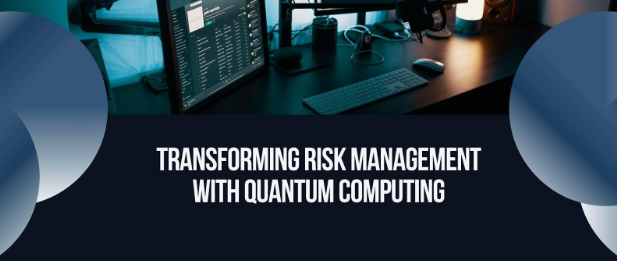In this modern era of rapid technological progress, quantum computing is poised to revolutionize risk management practices across multiple industries. Pradeep Kumar Chilukury, an expert in quantum computing applications, explores how this technology is reshaping risk management strategies, particularly in sectors like cybersecurity and finance. His research demonstrates how quantum computing improves the ability to assess and mitigate risks, offering faster, more accurate results than traditional computing methods. With its ability to analyze vast amounts of data simultaneously, quantum computing unlocks new possibilities for predictive analytics and decision-making. The ongoing evolution of this technology promises to enhance businesses’ ability to navigate complex, real-time risks more efficiently.
The Quantum Shift in Risk Management
Quantum computing has introduced a shift in how businesses handle risk assessment. Unlike classical systems, which rely on binary data processing, quantum computers leverage qubits, enabling them to perform complex calculations at an unprecedented scale. This advancement is particularly impactful in finance, cybersecurity, and data analysis, where traditional computing struggles with growing demands.
Supercharged Financial Risk Analysis
In financial risk management, quantum computing revolutionizes the ability to process vast amounts of data for real-time decision-making. Traditional Monte Carlo simulations, widely used for portfolio risk assessment, can take days to process financial instruments. However, quantum algorithms drastically reduce this time, achieving results within minutes and improving decision-making accuracy.
Quantum computing also enhances Value at Risk (VaR) calculations, a critical metric for financial institutions. Conventional methods struggle to compute VaR when dealing with portfolios containing thousands of assets. Quantum techniques streamline these calculations, allowing for deeper insights into investment risks, market fluctuations, and volatility. As financial systems grow more complex, these advancements will become essential.
Reinventing Fraud Detection and Cybersecurity
Cybersecurity has become a pressing concern as digital transactions and cyber threats rise. Quantum computing introduces new paradigms in fraud detection by identifying transaction anomalies that conventional systems often overlook. By analyzing billions of transactions in real-time, quantum-enhanced security systems improve fraud detection capabilities, potentially reducing fraud losses by 40%.
Additionally, quantum cryptography is shaping the future of secure communications. Traditional encryption methods, such as RSA and ECC, are vulnerable to quantum decryption techniques. To counter this, researchers are developing quantum-resistant cryptographic algorithms. The U.S. National Institute of Standards and Technology (NIST) has identified promising encryption methods like CRYSTALS-Kyber and Dilithium, ensuring long-term data security.
Hybrid Quantum-Classical Computing for Decision Making
The integration of quantum computing with classical systems is creating a hybrid computational approach that enhances decision-making. By 2027, businesses are expected to incorporate quantum-classical models for risk evaluation, allowing for faster assessments. The fusion of quantum computing with artificial intelligence (AI) and blockchain technologies extends its capabilities, particularly in industries requiring rapid risk analysis.
Addressing Implementation Challenges
Despite its potential, quantum computing faces hurdles. The current generation of quantum computers requires extremely low temperatures often near absolute zero to function effectively. Maintaining quantum coherence is a challenge, as errors can disrupt calculations. Researchers are actively working on error correction techniques and hardware advancements to make quantum computing more reliable.
Another challenge is the resource-intensive nature of quantum computing. The infrastructure required to maintain quantum systems is costly, and there is a shortage of experts specializing in quantum error correction. Bridging these gaps will require sustained investment in research, workforce development, and collaborations between academia, industry, and government.
The Future of Quantum-Powered Risk Management
With rising investments in quantum technologies, the next decade will witness advancements in risk management. The quantum computing market is projected to grow exponentially, expanding beyond finance and cybersecurity into healthcare, logistics, and telecommunications. Cloud-based quantum computing services will further democratize access to these powerful tools.
In conclusion, the rapid advancements in quantum computing are set to redefine risk management, enabling businesses to process complex data with unprecedented speed and accuracy. As quantum computing evolves, its integration into risk management frameworks will be a defining factor in shaping secure, efficient, and intelligent decision-making systems. Organizations that embrace quantum-enhanced analytics will gain a competitive edge. Pradeep Kumar Chilukury’s research underscores the need for businesses to prepare for this technological leap, ensuring they are positioned to harness quantum computing in the years ahead.































